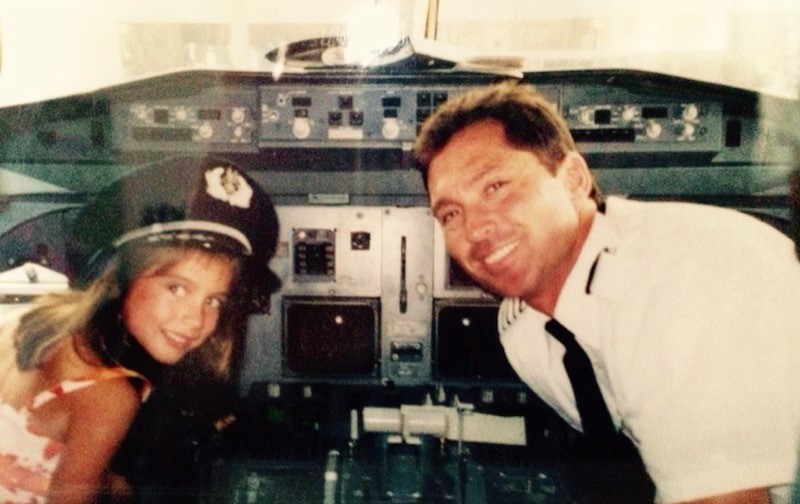

Tristan Morse grew up immersed in aviation. With her father a pilot for American Airlines and her mother a flight attendant at Delta Airlines, it “runs in her blood” so to speak. She grew up in Dallas, TX at a residential air park, which is basically a neighborhood built around a small airport with airplanes parked at the houses instead of cars.
“Growing up, my dad would take me flying as a little kid in our Cessna 120 taildragger. I would also travel the world with my parents with our airline benefits, and I always loved that freedom.”
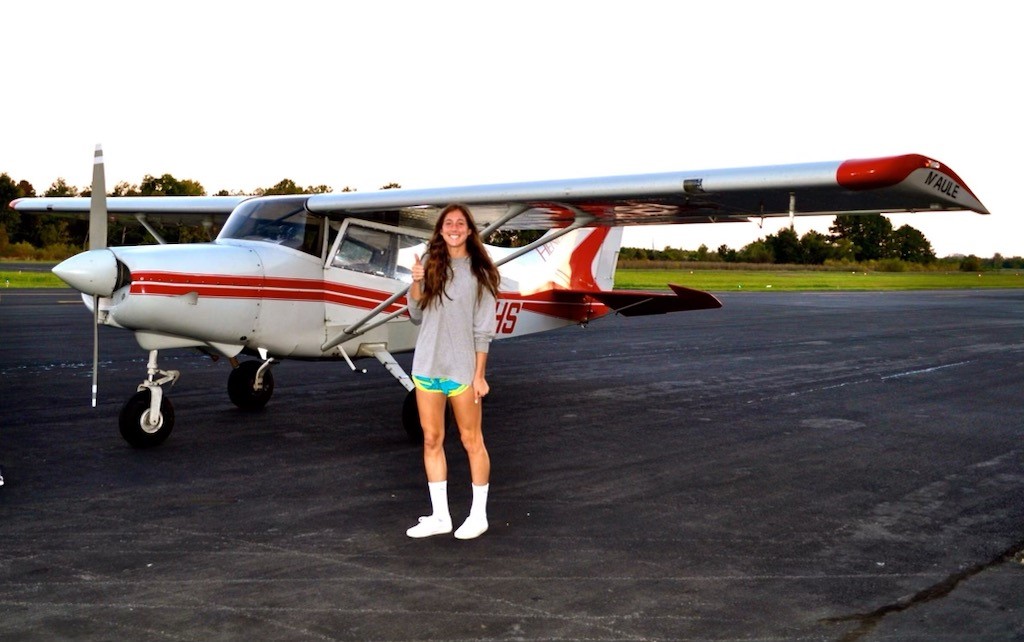 Being surrounded by aviation, it would seem Tristan’s career path was set. Surprisingly,
a pilot career wasn’t always on her radar. She went to college in Arkansas on a soccer
scholarship, but like many new college students, hadn’t decided what to pursue as
a major. During her freshman year she took flight lessons to see if she enjoyed it.
In her own words, “After I flew my first solo, the flying bug hit me hard, and I knew
I wanted nothing more than to be a pilot and fly for the rest of my life.” Not long
after, she left her soccer scholarship and transferred to Utah Valley University to
pursue a Bachelor of Science Degree in Aviation Professional Pilot.
Being surrounded by aviation, it would seem Tristan’s career path was set. Surprisingly,
a pilot career wasn’t always on her radar. She went to college in Arkansas on a soccer
scholarship, but like many new college students, hadn’t decided what to pursue as
a major. During her freshman year she took flight lessons to see if she enjoyed it.
In her own words, “After I flew my first solo, the flying bug hit me hard, and I knew
I wanted nothing more than to be a pilot and fly for the rest of my life.” Not long
after, she left her soccer scholarship and transferred to Utah Valley University to
pursue a Bachelor of Science Degree in Aviation Professional Pilot.
“When I looked to transfer to another university, I was so overwhelmed that I was starting my college search all over again. Out of all the places I looked and visited, UVU had an impressive training center, aircraft fleet, and offered the most efficient training regarding cost and timeliness. It checked every box I was looking for in a college and an aviation program. Looking back, it was definitely the best decision to do my flight training at UVU.”
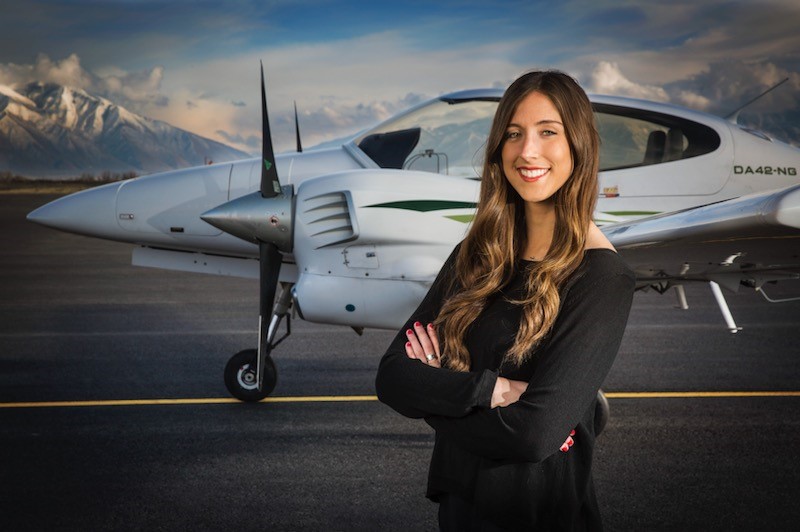 Utah is one of the most mountainous states in the country, which offers some unique
advantages and experience to pilots in training. Aircraft performance is negatively
impacted in high-elevation environments and the high peaks and funnel-canyons cause
wind and air currents that create challenging flight conditions. Many pilots do not
get this type of experience in their early training. Tristan’s training at UVU led
to her being selected for the Designated Mountainous Airport Program to fly exclusively
out of Aspen, Colorado, one of the riskiest airports in the world, due to its high
elevation and the surrounding mountainous terrain. SkyWest Airlines, where she was
employed at the time, is the only public airline that services that location. “I was
so thankful to have so much experience flying in the mountains while I was an Aspen
pilot. It made me a better pilot and Captain.”
Utah is one of the most mountainous states in the country, which offers some unique
advantages and experience to pilots in training. Aircraft performance is negatively
impacted in high-elevation environments and the high peaks and funnel-canyons cause
wind and air currents that create challenging flight conditions. Many pilots do not
get this type of experience in their early training. Tristan’s training at UVU led
to her being selected for the Designated Mountainous Airport Program to fly exclusively
out of Aspen, Colorado, one of the riskiest airports in the world, due to its high
elevation and the surrounding mountainous terrain. SkyWest Airlines, where she was
employed at the time, is the only public airline that services that location. “I was
so thankful to have so much experience flying in the mountains while I was an Aspen
pilot. It made me a better pilot and Captain.”
Tristan cherishes the camaraderie she felt at UVU with fellow aviation students and teachers. “Nobody really ‘gets it’ like the people who are training right alongside you.” That camaraderie is a common theme described by graduates of UVU. In the sometimes long and tedious journey to build flight time and earn FAA licenses, students at UVU help each other along in study groups, clubs, and activities to learn from each other’s flight training experiences. “The training and education I received at UVU has set a firm foundation that I still use in my daily flying. I had amazing flight instructors throughout my flight training, and even the lessons I learned in the classroom have been valuable.”
As with any line of work, there are both challenging aspects and benefits to an airline pilot career. Tristan shared some challenges she faced as well as what she loves about it:
“There are the tough days where you have a bad lesson or fail a checkride. You have to move past it and allow it make you a better pilot rather than pull you down. I’ve been there. There are the tough days where you’re working 90 hours a month as a flight instructor or a regional First Officer. You’re grinding and working weekends, wondering if there will ever be a light at the end of the tunnel. I’ve been there too. Everyone will face hurdles and setbacks in their journey to their ‘dream job’. It’s not a matter of if, but when. I am proud that I’ve persevered throughout the hardest days and believed in my dream. It’s so worth it to have a job I love.”
Of course, the career also has its allure, which Tristan touches on: “I love that I’m always growing as a pilot and a person. I might be doing the ‘same thing’ every day, but it’s always different and new. I’m always learning something new and trying to do that ‘greasy’ landing. It’s a welcome challenge and it keeps things from getting boring. You also meet so many amazing pilots, crew members, and passengers throughout your trips and get to visit so many cool places.”
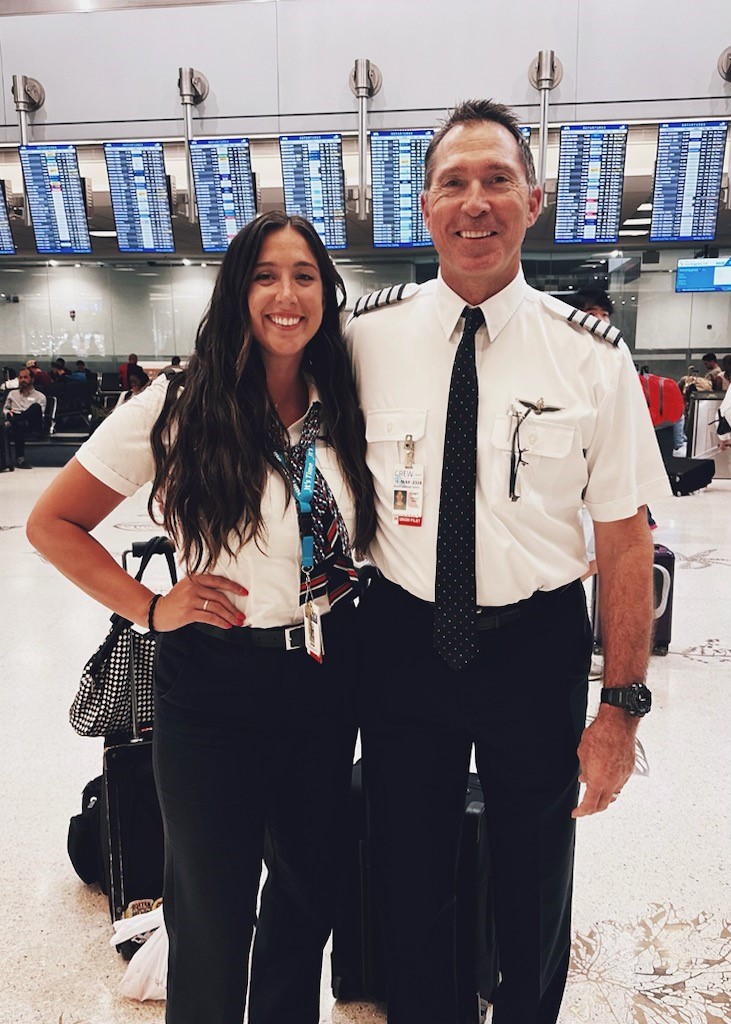 In addition to her UVU training and degree, Tristan emphasizes the importance of mentors
who guided her along her journey. One such mentor was Jan Anderson, a Captain at American
Airlines, who Tristan met when she attended the Women in Aviation Conference as a
UVU student. Jan helped her build her resume, encouraged her throughout her training,
and once she got the call from American Airlines, helped her prepare for her interview.
“It was so inspiring to have a strong, successful female pilot to look up to.”
In addition to her UVU training and degree, Tristan emphasizes the importance of mentors
who guided her along her journey. One such mentor was Jan Anderson, a Captain at American
Airlines, who Tristan met when she attended the Women in Aviation Conference as a
UVU student. Jan helped her build her resume, encouraged her throughout her training,
and once she got the call from American Airlines, helped her prepare for her interview.
“It was so inspiring to have a strong, successful female pilot to look up to.”
Tristan also recognized her father, who as an airline captain was always willing to offer advice and guidance in everything from selecting a training school, quizzing her in preparation for a checkride, and even offering tips on improving her landings. “I would not be where I am without these amazing mentors, and I’m so thankful they stepped up to the plate and stuck by my side throughout my aviation journey.”
With a main hub in Salt Lake City, Utah, many UVU graduates target Delta Airlines as their company of choice. When Tristan began applying at the major airlines, she received interview offers from both American and Delta and was faced with a difficult decision. “I looked at more logistical reasons to help me make my decision. I felt like American had more desirable bases for places I could see myself living so I didn’t have to commute. American also offered significantly better seniority throughout my career based on the timing. Looking back, I have no regrets—American is where I’m meant to be.”
The AA culture has been very supportive, warm, and friendly. Tristan noticed this even at her first interview. “My chief pilots and my LA flight office went above and beyond when I got hired to make sure I had time off for my wedding and bridal events. The LA Captains I’ve flown with have exceeded my expectations. I’m treated truly as a peer and respected as a fellow pilot. They have gone out of their way to teach me so much about the 737 and flying at American.”
A negative stigma that still surrounds the airline pilot career is that it is not good for families, due to the extended time away from home. Airlines have taken major steps to change this perception, offering a variety of work schedules, making the career more appealing to a broader demographic. Tristan paid her dues with a few tough years at the regional airlines, flying a less-preferred schedule as she built her seniority. Once she was hired with AA, her schedule improved tremendously. “Currently, I’m working about 3 days per week. I could work a little more if I wanted, but I’ve been enjoying my time off with my husband and soaking up our limited time left in California.” Currently based in Los Angeles, she will soon be relocating to Charlotte, NC and wants to start a family. AA has a lot of scheduling options for female pilots, allowing them a lot of time at home, while still being able to fly, which in Tristan’s words is her “ultimate dream.”
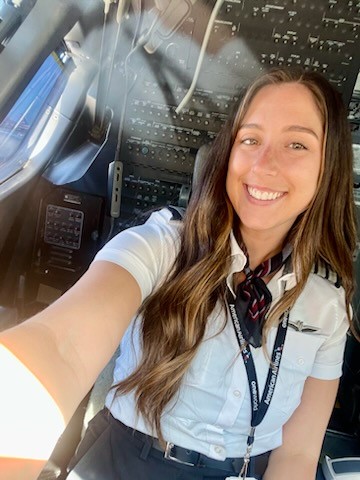 Tips and Advice from Tristan
Tips and Advice from Tristan
“My advice is to persevere, but also don’t forget to enjoy it. You have to pay your dues and build your experience in this industry. At times, it feels hard or frustrating or never-ending, but I promise that light at the end of the tunnel will come. When it does, I promise you it’ll be worth it. But you also want to be able to look back and have fond memories of your crazy solo cross countries, or your first good landing, or the first student you taught how to fly, or that fun layover in the middle of nowhere. You only train once your whole career—don’t be so rushed that you miss out on how special it is.
- Chair-fly. A lot. It really does help.
- If your landings suck, I promise they’ll magically get better one day. Just keep trying.
- Start a digital logbook. Literally right now. Trust me. Your future self will thank you.
- Flight instructing is the hardest but most rewarding job you can do. It will 100% make you a better pilot.
- At your first airline training, you’re probably gonna have a big learning curve. Study hard and over-prepare. Keep your head in the game, and you can have fun and celebrate when it’s over.
- Get your airline apps reviewed professionally. What’s another $200 at this point. Update your app every month.
- Learn how to socialize with strangers. It’s a long trip if you can’t talk to your copilot.
- If you have the option to live in base, just do it. Commuting can be done, but it sucks.”
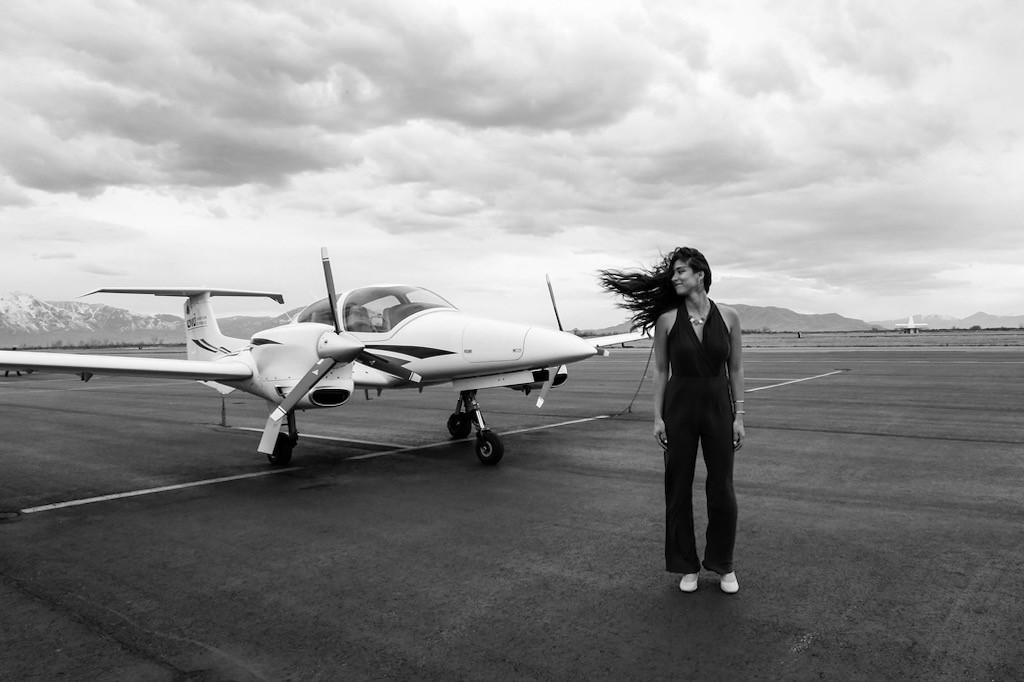
Graduation day at UVU (2016)
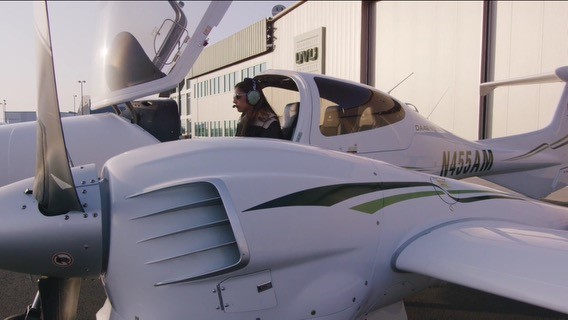 DA-42 at UVU
DA-42 at UVU
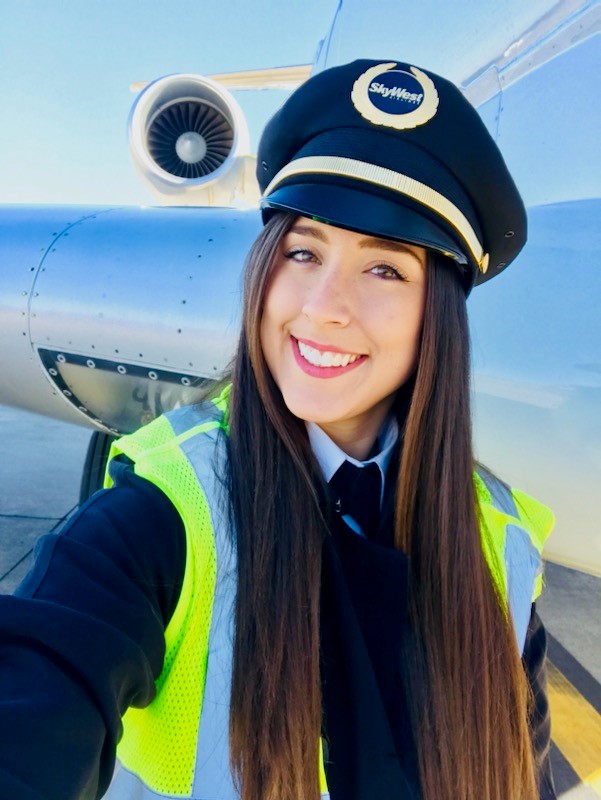
Skywest pilot Tristan preflighting the CRJ
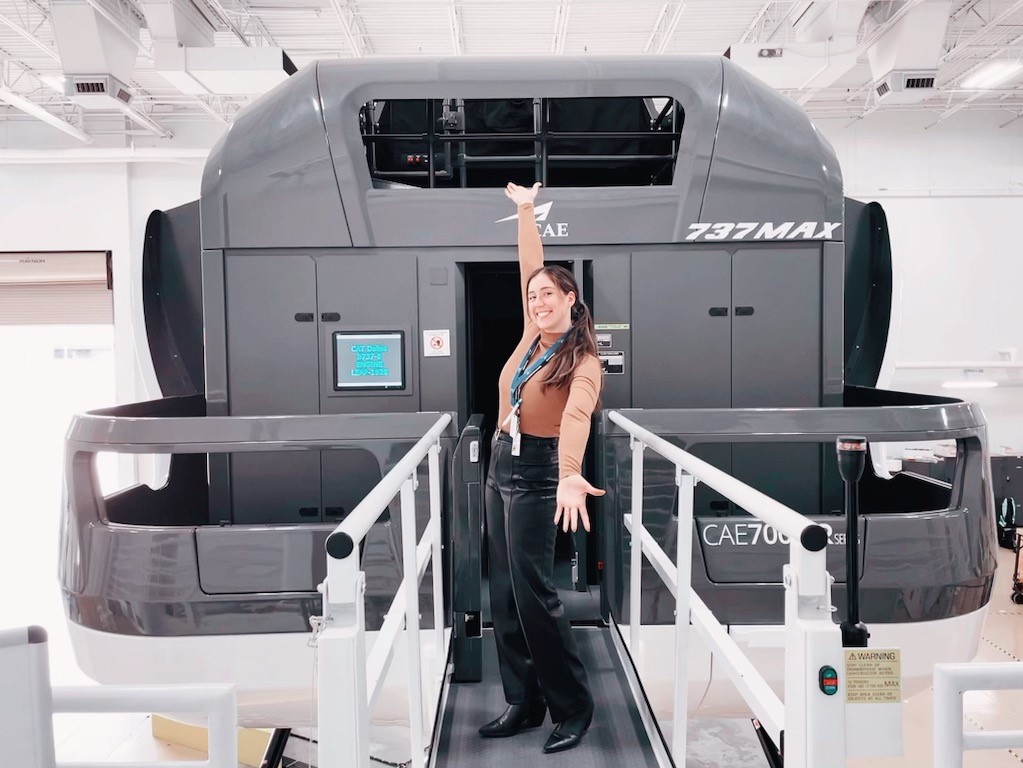
Training on the 737 simulator at American Airlines
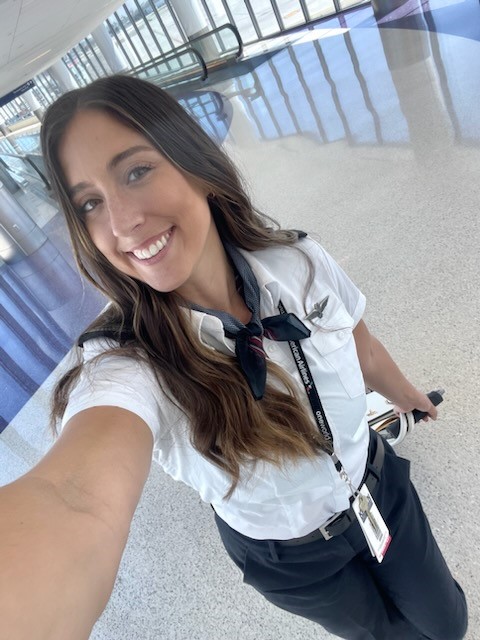
American Airlines 1st Officer Tristan Morse
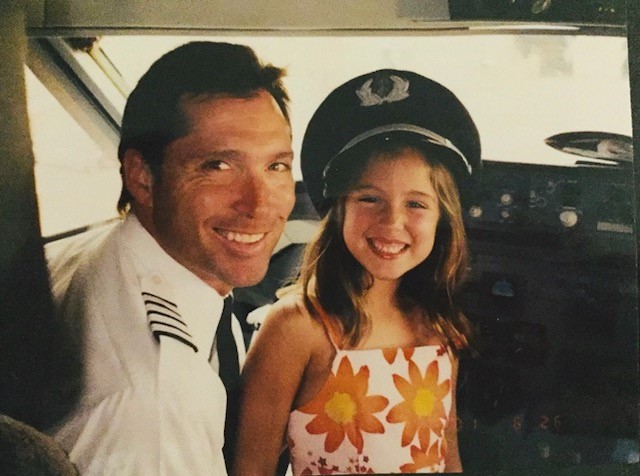
Young Tristan with dad
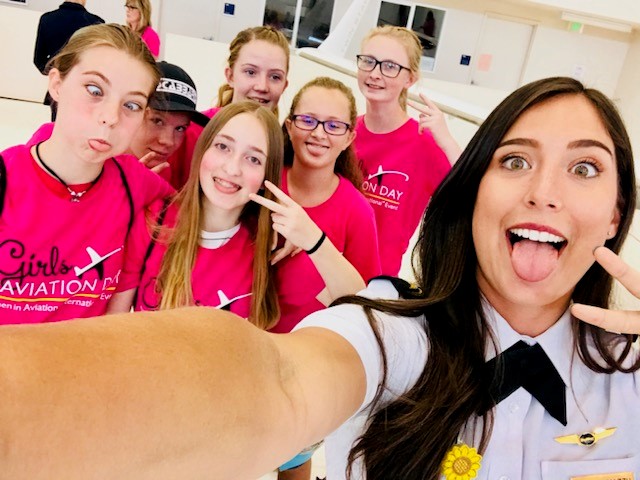
Girls in Aviation Day
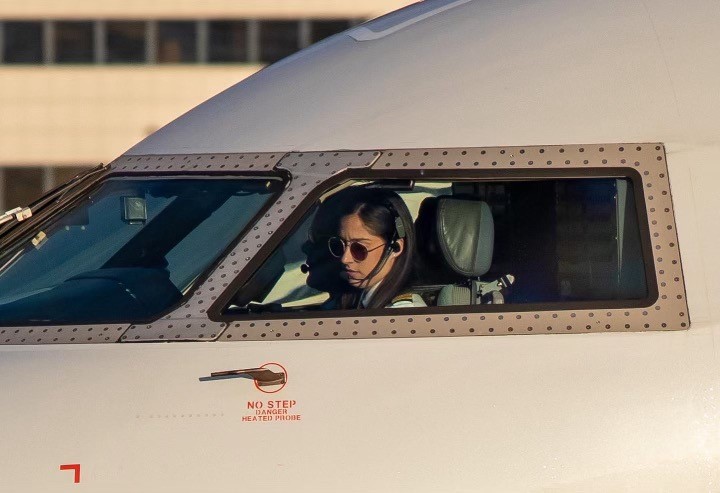
In the Captain's seat of the CRJ at Skywest
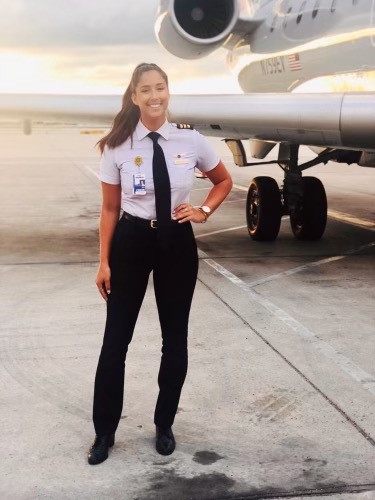
1st Officer at SkyWest Airlines
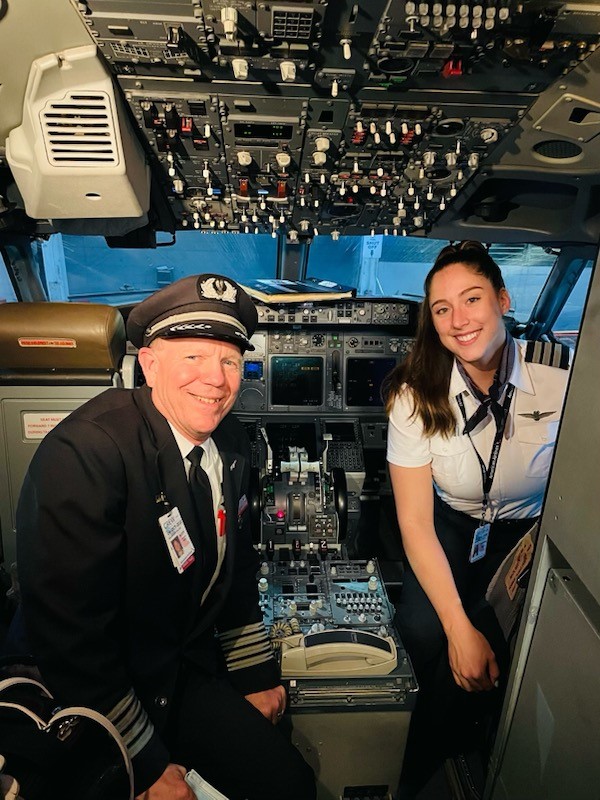
Completion of "checkout" on the B-737
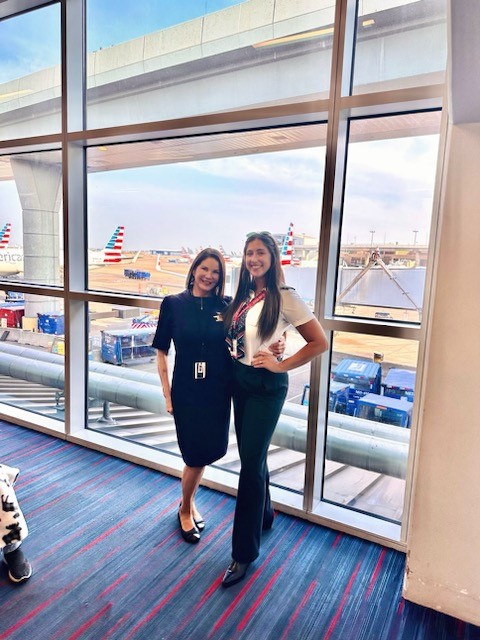
Tristan with mom (Flight Attendant at Delta)

